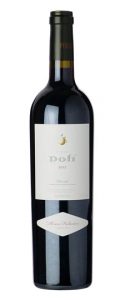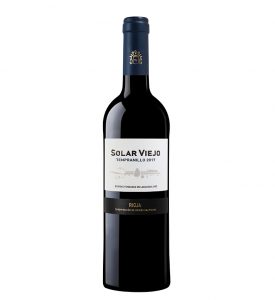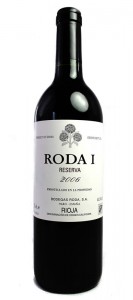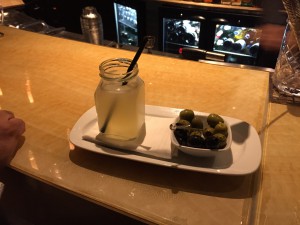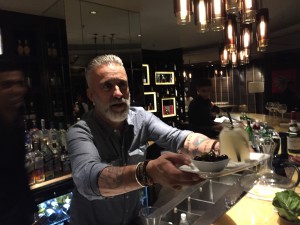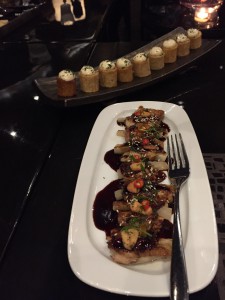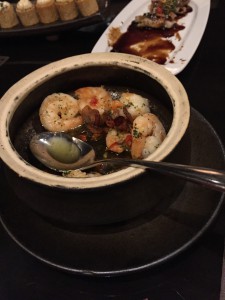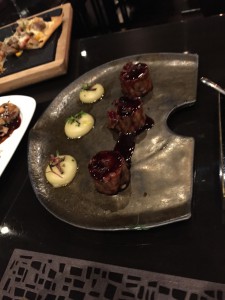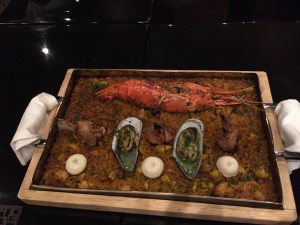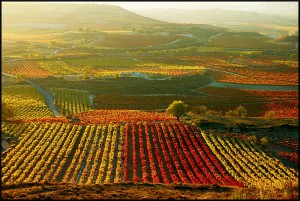Nikhil interviews Albert Adria, one of the most acclaimed chefs in the world and brother of Ferran at their new restaurant- Tickets.
I was in Barcelona recently, as a pit stop after a visit to Priorat, a truly beautiful wine region in Spain not too far from the city. This region produces beautiful wines that are gaining popularity around the world, they are also some of Spain’s most expensive wine offerings. While in Barcelona I was intent to eat at Tickets which is the famed brothers – Ferran and Albert Adria’s new restaurant after closing the legendary and path breaking El Bulli.
El Bulli was considered until very recently the best restaurant in the world but perhaps only not the best anymore because the brothers closed the restaurant for good. I tugged and pulled, bullied and pleaded and succeeded in getting myself a reservation at Tickets. This restaurant normally has a two month plus waiting list and to add to my good fortune, as a bonus, I got to spend time with Chef Albert Adria himself.
What was the Idea behind Tickets?
We wanted to create a traditional yet sophisticated take on the regular Spanish tapas bar. To take the concept of the everyday tapas bar and make it more fine dining yet retaining the casualness of a tapas bar.
Do you plan to open any restaurants outside of Barcelona?
We have a lot of opportunities today to open restaurants all over the world but at the moment we do not want to. We may open a restaurant in London. We don’t have the team to open up more restaurants.
Your fascination with food started with?
I started working in the kitchen when I was 15 years old, I started working in the kitchen only because I needed to work but soon I fell in love with food and the kitchen.
What’s the secret to opening amazing restaurants?
When we closed El Bulli, we were had a lot of experience and a great team. This team allows us to take all the ideas that we have in our minds and make it a reality. We understand what people want.
Why did you close El Bulli ?
El Bulli was a train running at a very high speed and it was like we had to keep feeding the train to ensure that it stayed at that speed. At the end we were just tired.
This train allowed us to learn a lot, we became known around the world and it is the best moments in my life and the life of Ferran. We are the same team but we are older and with families, it was time to move on. We also wanted to close El Bulli at its peak.
Do you have the same ways of thinking with Ferran ?
We speak the same language but have different personalities. We discuss a lot and find middle ground.
In which direction is Spanish gastronomy going?
It is a contradiction, on one hand we want to be avant- garde and on the other we want to hold onto tradition.
What’s new in Spanish cuisine?
It is not easy to find something new now but perhaps we can see what we can bring back from history. Things have changed; the world is a much smaller place now. Now I can get ingredients from India, South America and Africa for example. Thanks to the internet I can see the menu’s of restaurants all over the world. Information is easy and to take new directions in food or borrow from different cultures is on our fingertips.
Do you believe in using ingredients from all over the world ?
Tickets is 95% Spanish and besides a few things here or there we are proud to showcase Catalan cuisine using the finest local ingredients.
Could you explain Molecular Gastronomy?
Unfortunately I cannot explain it. I was talking to a journalist the first time we used nitrogen and somehow we got tagged as purveyors of molecular gastronomy. We wrote a letter to the entire media saying that we do not believe in molecular gastronomy, all we believe is in a good kitchen and a bad kitchen. The customer is not interested in molecular gastronomy. I may give him a variation of an olive but if he doesn’t like the taste of that olive we have failed. At the end every cuisine of the world depends on only one thing, the quality of the ingredient.
To make a great olive recipe you need to ensure you have the best olives, we make sure we get the best and that’s it. For the customer, the experience is just 2 seconds; we only have those 2 seconds to give them a burst of flavours.
We serve customers from around the world, which is difficult, 50 % of our customers are foreigners, we want to make a menu for everybody. So we cannot say that we do or understand what molecular gastronomy is.
When I was on my way to Tickets I was excited, finally I was going to have the Adria experience. Do you realize the level of impact you have had on people who love food?
The entire team knows that there are people waiting to have dinner or lunch at our restaurant and we take this responsibility very seriously. We want to make sure that we do the best with every lunch or dinner seating.
What is the reason behind calling the restaurant Tickets?
The area where Tickets is located was like Broadway so we called it Tickets. The doors are like a cinema door. You come in for a show, for an experience.
You use emotion in food, my ice cream that I ordered was served in a way that reminded me of my childhood. ( It was served by someone riding an icecream cart to my table and ringing the cycle bell to inform me that it had arrived).
For us the most important thing is the food. We can play with emotion, we can create flash backs to when make people were young, but in the end the quality of the food is the most important to me. And really that’s all. Everything else, emotion, changing shapes and sizes is important but not as important as the food. We should not only do play food but also serious food. I am serious when I am fooling around with food.
As told to Nikhil Agarwal, Director & Sommelier – All Things Nice


